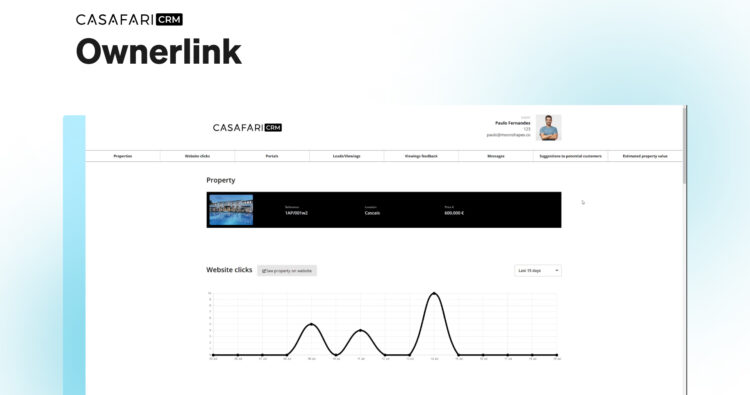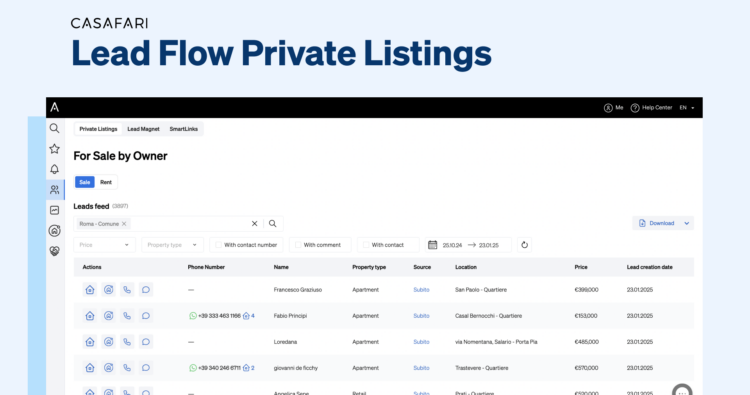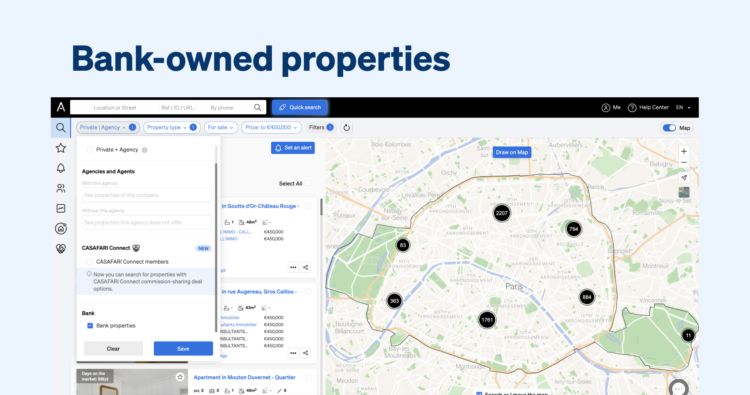Like second-hand car salesmen, real estate agents have not always enjoyed the best of reputations.
A Google entry of ”bad estate agents” returns more than 97 million results; these include such titles as ”Estate Agents vs. Used Car Salesmen: The Scum of Society” (e.g. Tribemagazine). Meanwhile, a quick trawl through online forums reveals questions like ”What’s the difference between a realtor and a used car salesman?” (e.g. Trulia forum).
Overall, there are several common misconceptions about the work estate agents do:
- Some people, for example, think it’s easy to sell multi-million-pound villas;
- or, that they just milk buyers and don’t care about the longer-term outcome;
- or, that they are all rich because they make a killing on commissions for doing virtually nothing.
The list of misconceptions goes on and on.
(more here: Realtytimes News and Advice, Patch News)
What’s the reason behind this? One explanation is that the home buying and selling process is challenging, and the legal nuances of real estate taxes and transferring property rights are unknown to most people until they come to experience it at first hand.
However, when it comes to purchasing or selling a big-ticket item like a home, most people expect to receive an outstanding service from a skilled professional, with all of the following duties included:
- Preparation of sale, home staging, and marketing;
- transferring property rights and due diligence;
- understanding the latest tax and legal regulations (we can help, check our Buyer’s Guide);
- getting to grips with local property market;
- gaining insights into historic data;
- forecasting future demand and price development.
To serve sellers and buyers and get the best deals agents therefore need to be jacks of all trades and possess multiple skills. Considering the number of listings agents need to juggle, multiplied by the complexity of the selling and purchasing process and deep knowledge demanded by buyers at each stage. Suddenly a day in the life of the average estate agent doesn’t look quite so enviable.
What’s clear is that sellers and buyers rarely understand what estate agents actually do, nor do they know how to distinguish a particular agent from its competitors. It’s therefore also crucial for agents to be able to detail what they do and explain how they do it better than others.
In this post, we shall explore the daily tasks estate agents perform to gain a better understanding of what their work actually involves. We will also look at the problems many agents face in being regarded as successful experts.
What an Estate Agent Does
- Above all, real estate agents are like local ninjas: they have to know their market extremely well and, have usually been living and running their business in the area for several years.
- Real estate professionals are the most critical medium in bringing buyers and sellers together.
- Agents represent the seller, the buyer, or both. In European resort markets, there are mainly hybrid models of agencies meaning that estate professionals represent both buyers and sellers.
Agents spend almost 30% of their time each day on sourcing new listings, as well as monitoring the market and competition. On top of this, agencies need to manage marketing campaigns to promote their brand and individual listings, organising viewings, negotiating the selling price, arranging the contract and closing of the sale.
Not to forget that most agents have the day-to-day task of running their boutique agency or small franchise; this includes admin work just like in any other SME business (i.e. overseeing rent, salaries, invoicing, accounting, advertising).
More specifically, the daily tasks of a good estate agent include the following:
1. Sourcing of new listings
Estate agents need to monitor the market daily and check out the latest industry trends. It’s essential they know exactly when and where a new suitable property is listed on the market. Agents also notify their clients when new properties within their price range crop up.
The sourcing of new listings is one of the most time-consuming tasks agents face. In resort markets real estate portals capture just a fraction (less than 30%) of the actual offering. This means that any realtor looking to map the entire market would need to search from a large list of online databases, search engines and single agency websites. It is a manual process and a tedious one.
Because of the complexity of all the unstructured data available the work is never complete. Moreover, agents need to check if the information they receive about property is relevant and suits all the requirements provided.
Estate agents always remember that their competitors are also looking for similar deals, as there is no exclusivity on the marketplace. Attractively priced or unique new listings are the fastest to be added to portfolios and the quickest to sell so they need to react fast. Indeed, 25% of all new listings sell within three months while others might stay on the market for years.
2. Manually watching for price changes via other agency listings
Most real estate agents begin their day by catching up on the previous day’s activity to note any price changes as well as other updates across the market. The agent should investigate the recent sale and pricing of comparable properties in the area to gain a clear idea of the current market value and to be able to adjust the prices in their own portfolio accordingly.
This is where the agent’s knowledge and skills are crucial given that Spain doesn’t have a public register that highlights how much individuals pay for homes in a specific area. In order to get the most accurate data while searching for new listings, agents manually compare prices, property data and locations provided by different agencies. It’s essential to have a view of both the property itself as well as the wider area to ensure that the purchase price corresponds to the location’s value.
An estate agent should be able to provide the client with an idea of the recent purchase price for similar properties. To do this, they need to research the prices at which the comparable properties have recently been sold in different agencies. The term for this process is ”Comparable Market Analysis”, or CMA for short (source: Investopedia).
3. Manually watching for changes in status
Agents also need to manually scroll through other agency listings to see when properties are sold, reserved or let in order to be able to update the information accordingly.
4. Making pictures and preparing marketing materials
Several studies show that the right photos can dramatically improve an item’s selling prospects. On one e-commerce site 67% of consumers say that the quality of an image is ”very important” in selecting and purchasing a product (source: Jeffbullas). This is also true of selling homes. For instance, an internal case study conducted by IMOTO, a company specialising in real estate photography, revealed that listings using professional photography typically sell 50% faster and 39% closer to the initial list price than similar properties without professional photos (source: Realtor.com).
Low-quality pictures will reduce demand even for the best properties, so any successful estate agent business will depend heavily on good photography. Besides which, buyers often request pictures from agents in advance in order to see what they might expect from a home before viewing it.
For this reason, professional photography is an essential outlay for any reputable estate agent. Many boutique firms take and edit pictures in-house; bigger agencies often hire professional photographers.
5. Running online and offline marketing campaigns
Apart from advertising listings on their own websites, realtors exert a lot of time and effort working offline and online marketing channels to target potential buyers and generate leads. These include catalogue publishers, magazines, online property databases, media outlets featuring agencies, and listings. Web updates, including uploading of pictures and descriptions, also take up a significant portion of the day.

Copyright: casafari.com, All Rights Reserved
While agents still employ traditional marketing practices such as direct mailings, magazine and newspaper ads, online marketing methods are nevertheless an essential platform for agents hoping to keep pace with rival and to target buyers who are increasingly used to searching and purchasing homes online. For the same reason, social media is fast becoming one of the top channels for estate agents to advertise themselves and their properties to prospective clients.
While agents are posting targeted ads on Twitter or Facebook to ensure that individuals are finding their services, they are also thinking about effective ways to market their knowledge and experience. Content marketing activities, such as blogging and content creation are more time consuming, but nevertheless very important strategies.
All of these online marketing methods require a certain skill set and experience to be done in a competitive and effective manner.
6. Dealing with “walk-in clients”
One of the most time-consuming tasks of an estate agent is attracting new customers. Agencies undertake hundreds of face-to-face meetings each year to build and maintain relationships with current and ”walk-in clients”, as well as referrals.
Firms operating in second home markets in particular are used to dealing with “walk-in clients” who want to check the offers available at the agency while they are on vacation. But there is a misconception that these individuals come along by chance, as if they were shopping for a pair of shoes or a T-shirt.
The majority of ”walk-in clients” have already done their research and checked out the agency’s portfolio online before knocking on the door. They also usually have a relatively clear idea of what they’re looking for.
In order to get these customers on to their books, agents needs to listen to “walk-ins” extremely carefully, present offers quickly, and respond honestly and accurately to the buyer’s questions regarding the property. Dealing with “walk-in clients” is highly time-consuming, and these visits don’t always convert into sales.
Like all sales pros, estate agents are used to hearing the word “no” on a daily basis from both buyers and sellers. Nobody likes rejection, yet it’s part and parcel of the life of an estate agent and they don’t have time to get depressed about it. They have to learn to accept rejection and move on to the next prospect.
7. Handling online inquiries
Lead generation is the bread and butter for estate agencies. They obviously need to generate leads, which includes phone calls and client visits, as well as emails and online interaction.
In the modern age of internet, buyers are increasingly making their inquiries online. However, dealing with online requests takes up a lot of time each day; just checking messages from clients once or twice a month is not going to cut it.
8. Arranging property viewings
Agents organise showings of listings in their own portfolio and negotiate visits to properties listed by other agencies.
These viewings are an essential part of the sales process and needs to be arranged and managed efficiently by agencies in order to match buyers with the most suitable homes on the market. If visits are not properly organised, it’s likely that the time spent for viewings will be wasted for all those concerned.
Pre-visit preparations will involve the agent compiling all the necessary information on the listing for the prospective buyer. This will usually include a standard plan of the building with details on the home’s fixtures and utilities, along with a brief description of additional facilities and the materials used to build the home.
It’s important to mention that, in holiday destinations, it’s standard practice for real estate agents to assist sellers with viewings. Many sellers are based overseas and cannot visit the property regularly enough to show people round. The agent will therefore take care of preparing the property for the visit and will handle all the necessary procedures on behalf of the seller. This enhances the need of real estate agents as they offer a variety of irreplaceable services to both buyers and sellers.
9. Meeting sellers and buyers in person
Dealing with buyers isn’t just about driving them around to view houses; there is considerable preparation involved to figure out their exact requirements, locate suitable properties and collect the information clients need to make their decisions.
Before showing properties to potential buyers, estate agents need to meet with these individuals and evaluate their preferences. Agents require a clear idea of the type of the home clients are looking for, and how much they are willing to spend. The more thoroughly this step is done, the more effective the search process will be.
Agents also need to be able to provide detailed information on the properties in their portfolio. This includes details on zoning, taxes, and utility costs, as well as information on the materials used to build the house and any notable flaws with the construction.
Estate agents also communicate marketplace activity to sellers through weekly updates and reports, as well as providing information on any offers submitted and guiding them through the selling process.
Generally speaking, the core objective of second home buyers and sellers in the Balearic Islands is to find a competent, professional, honest and bilingual agent, who is knowledgeable about the local marketplace. Realtors therefore need to demonstrate expertise that is specific to their market and offer a valuable service, providing assistance through the entire home buying process.
10. Price negotiations, working with lawyers and tax consultants
Real estate agents also help sellers to define their listing price. When it comes to the second home market, prices are calculated not just by square footage, but by a variety of factors, which include the exact location of the property, the view it offered, its proximity to the sea and the surrounding neighbourhood, as well as other considerations. As previously mentioned, agents undertake market analysis in order to help sellers determine the correct list price.
Agents also spend time working out the details of agreements between buyers and sellers and supporting them during the negotiation process. They help them draw up the terms of the purchase contract, which may involve evaluations and inspections, financing, as well as other documentation.
11. Help buyers to arrange mortgages
Another important responsibility of real estate professionals is to provide property buyers with information on the various financing options available. They should also help buyers to review their financial situation.
For home buyers, selecting the most appropriate financing option for their home can be as important as choosing the property itself. Estate agents can be extremely helpful in providing consultation to their clients regarding the mortgage services and products offered by banks and financial institutions. By researching and understanding the mortgage market, agents can help buyers with this essential aspect of their decision making.
12. Overseeing Closing
Once the decision to purchase a property has been made, the real estate agent coordinates and schedules the signing of the agreement, and the closing of the sale at the notary. They also look over the legal documentation to make sure that the signing of the contract meets all the necessary legal requirements.
13. After the Deal Closing
Language barriers and the distances between buyers and their investments mean that, in the resort and second home market in particular, agent support is also necessary after the completion of the sale. This includes helping the new owner to set up telephone and internet, as well as organising contracts for water supply and electricity. Estate agents can also provide owners with a list of contacts for renovation work, gardening and pool maintenance and cleaning services.
Problems that Real Estate Agents Face
Before the introduction of the internet, the only access buyers and sellers had to information on potential properties was through estate agents. There were also far fewer ways for sellers to advertise their properties. Moe or less on a weekly basis, agents received phonebook-sized magazines providing information about the latest properties on the market. Each new entry was accompanied by a small, grainy, black-and-white photo.
Today, buyers and sellers have the tools to conduct their own extensive online search before having to set foot inside an agency office. With a few keystrokes and clicks of the mouse, they are able to access a wealth of information that was once solely in the hands of real estate agents.
This is where things get tricky. The second home market involves thousands of properties being distributed and sold by a huge number of agencies in every location, most of whom share the majority of listings. In the Spanish market, there is no centralized MLS (Multiple Listing Service) like the one commonly used in the U.S.
As such, along with the other daily tasks described above, such as lead generation, marketing, viewings etc., agents are forced to spend much of their time manually sourcing, managing and updating the latest property listings. Agents are left with barely any time to react to marketplace changes and to keep their portfolios up-to-date.
We have conducted several interviews with estate agents working in the Spanish resort and second home property segment. These individuals confirmed that difficult task they face in managing listings without the support of a unified database or marketplace.
Searching for new properties and keeping up-to-date with price changes is an enormous challenge for agencies without a designated staff to carry out this research. They need to constantly monitor other estate agencies on the market and manually check each new listing.
Furthermore, based on our 2015 study of 10.000s unique property listings by various agencies, price discrepancies between agencies can sometimes be as high as 46%. Data such as the square footage, plot size, and the number of rooms in the property can also differ considerably. To get the most accurate information possible, real estate agents therefore need to cross-compare each and every agency with an interest in a listed property.
Due to the large numbers of agencies involved, home sellers struggle to update all agents on decisions regarding changes to the list price or they simply forget to inform some of them. The fact that some agencies don’t have direct access to the seller can also cause discrepancies to occur; in other cases sellers muddy the waters further by posting listings directly on online databases themselves.
As a result, buyers end up finding discrepancies such as overpriced or outdated listings on online property databases or on agency websites. Misleading information and prices, location and size creates an extremely negative impression of the agents themselves and is extremely harmful to their reputation.
Many estate agents are worn out by looking for potential customers, and sourcing new prospects takes up the majority of their time and money. However, agents also lose the majority of their expensive leads because of discrepancies in their portfolios. This means that the existing lead generation is certainly not effective as it should be.
CASAFARI Helps Estate Agents! Here’s how:
By automating market comparison and competitor analysis, as well as the online sourcing of new property listings we help real estate professionals to save more than 90% of the time they currently spend on sourcing new properties and the researching the competitive landscape.
With the use of artificial intelligence and remaining respectful of European and US law frameworks, CASAFARI processes and matches all relevant properties available online. Our index offers the most comprehensive portfolio of properties available in a particular location.
More specifically, Casafari’s big data technology enables realtors to drive more leads and sales to their portfolios by:
- Providing access to all listings in one area;
- Helping agents to keep an “up-to-date” portfolio with actual offerings and prices;
- Offering instant notifications on “new properties”, “price changes” and “status changes” (hold/ sale);
- Sharing quality market insights, location and listing data to consult potential buyers in buying/ investment decisions (price/ sq footage., price developments, sale potential and return, etc.);
- Assisting with gross purchasing price calculations including all actual taxes;
- Providing Return on Investment (ROI) calculations in the event the home is rented out;
- Offering Comparable Market Analysis to help sellers determine the right pricing strategy for the property.
Based on the analysis of the entire prime property market in each location, CASAFARI’s Competitive Intelligence enables agents to become more competitive through improved portfolios, clearer insights and increased sales.
Bottom Line
Despite the emergence of online property databases, real estate professionals will continue to be the prevalent channels for foreign buyers in the Mediterranean. However, to be able to compete in an ever more crowded market, agents need to be constantly evolving and adapting to market conditions.
Estate agents need to add value to their existing skill set by being able to access inside market knowledge, understand and track trends, and remain up-to-date on the latest technological advances. Using this added know-how, agents can remain one step ahead of the competition; this added firepower will make it far easier to convert enquiries into leads, and turn potential buyers into committed clients for their business.













